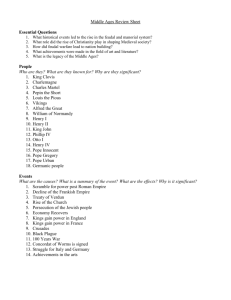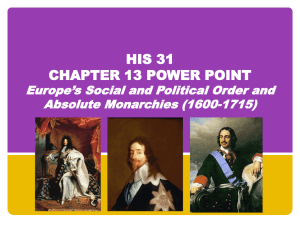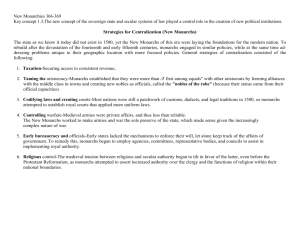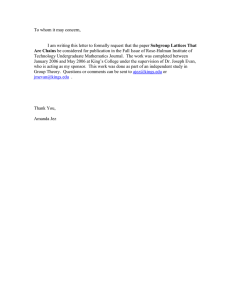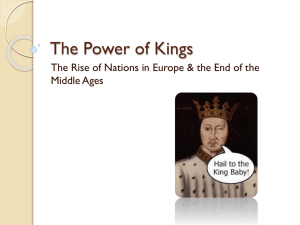Rise of National Monarchies
advertisement
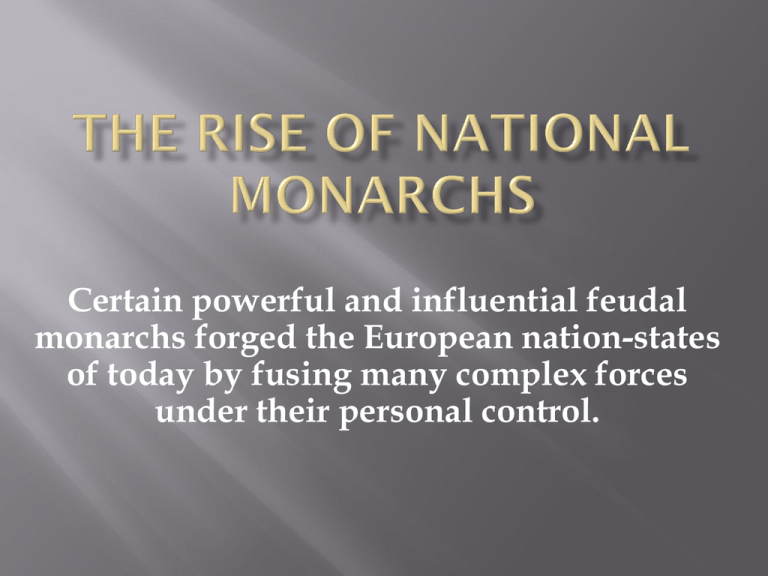
Certain powerful and influential feudal monarchs forged the European nation-states of today by fusing many complex forces under their personal control. Tudors Henry VII Henry VIII Elizabeth I the Parliament Valois Charles VII Louis XI François I Henry II the Estates General Habsburgs Maximilian I Charles V the Diet Isabella of Castile Ferdinand of Aragon Phillip II the Cortes Western European feudal monarchies begin in the 9th century as highly decentralized states, and the king in most instances was actual ruler of only a portion of the realm. The expansion of the royal domain at the expense of lesser nobles resulted from the marriages of the king and his family as well as success in wars. The objective of the monarch was to enlarge the royal domain to the limits of his horizon and his wealth to provide for his family and not to create a nation. In spite of this very feudal mindset, nations were created nonetheless. Once they perceived this result, national monarchs began to centralize their authority and gain control over the nobles, the Church, and the towns. This new unity planted the seeds of a national consciousness, and the benefits of centralized government became apparent. Kings enhanced their revenue to strengthen their armies by creating new taxes like the gabelle (salt tax) and taille (land tax) in France. They developed the role of royal councils, staffed with middle-class lawyers, to outmaneuver the aristocratic assemblies. In Spain and France, the kings negotiated with the papacy to allow them to appoint their own bishops, effectively taking control over the national church. Kings in Spain and France made effective and important marriages that enhanced the royal domains. The daughter of the king of Spain married into the Habsburg Holy Roman Empire France acquired Brittany England allied with Scotland through marriage With their armies, the kings conquered new territories, Burgundy for France and Granada for Spain, or subdue rebellions, Ireland for England. Charles VII (1422-1461) created the first permanent standing army in France. The monarchs used violence and the threat of violence against people who were seen as threats In England the king had the Star Chamber In Spain, the Inquisition The English kings also used justices of the peace to run local governments.
